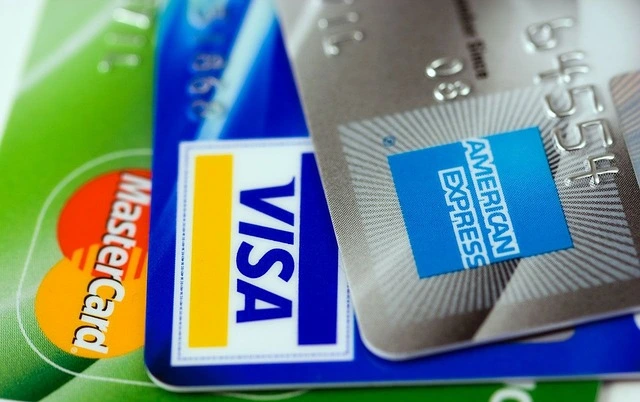
Credit cards serve as pivotal financial tools, offering a blend of convenience and strategic financial management. Recognizing the pros and cons of credit cards is crucial, as they embody both significant advantages and potential pitfalls. These tools are not just means of accessing funds or delaying payments; they’re gateways to rewards, credit building opportunities, and financial flexibility. However, they come with the responsibility of careful management to avoid the downsides such as debt accumulation and potential impacts on your credit score.
Understanding the dual nature of credit cards is essential. They present opportunities for enhancing financial wellbeing, like improving credit scores, earning rewards, and facilitating global transactions with ease. Yet, they also pose challenges, including the temptation to overspend and the risk of falling into high-interest debt. This comprehensive view underlines the importance of wielding credit cards wisely, ensuring they serve your financial goals without leading to financial strain.
Building Credit: A Double-Edged Sword
Utilizing credit cards judiciously can be instrumental in constructing a robust credit history, a cornerstone for financial health. By making timely payments and managing balances wisely, cardholders signal to credit bureaus their reliability as borrowers.
This positive reporting enhances credit scores, unlocking doors to lower interest rates on loans and other financial benefits. However, it’s pivotal to navigate this path with caution, as missteps can swiftly reverse these gains, underscoring the dual nature of credit as both an asset and a liability in financial planning.
On the flip side, the misuse or overspending on credit cards carries a significant risk of harming your credit score. Excessive spending can lead to high utilization rates, a critical factor that credit bureaus evaluate. High utilization suggests overreliance on credit, which can negatively impact your credit score.
Furthermore, missing payments or consistently carrying a large balance not only accrues interest but also signals to lenders a potential risk, further diminishing your creditworthiness. It’s crucial to exercise discipline in credit card usage to avoid these financial pitfalls.
The Convenience Factor
Credit cards undeniably offer unparalleled convenience compared to carrying cash. They streamline transactions, making purchases quick and effortless, whether in-store or online. This ease extends to safety as well; if your card is lost or stolen, unauthorized transactions can be disputed and are often fully recoverable, protecting you from financial loss.
Unlike cash, which, once lost, is nearly impossible to reclaim, credit cards come with security measures and fraud protection that safeguard your finances and offer peace of mind. This level of convenience and safety is a compelling reason for many to prefer credit cards as their primary method of payment.
While credit cards offer robust security features and fraud protection, the potential for fraud still exists. Cybercriminals constantly devise new methods to access card details and engage in unauthorized transactions. This reality underscores the importance of vigilance for cardholders.
Regularly monitoring your account for unfamiliar charges, using secure websites for online purchases, and being cautious with where and how you share your credit card information are critical practices. Credit card companies often provide alerts and safeguards, but personal diligence plays a vital role in minimizing the risk and impact of fraud, ensuring your financial security remains intact.
Rewards and Benefits: Sifting Through the Hype
Maximizing Perks
Credit cards are not just about spending; they’re about earning too. With a variety of rewards cards on the market, understanding how to maximize these perks is key. Cash back cards can offer a percentage of your purchases back into your pocket, while airline miles cards turn everyday spending into your next flight.
Hotel points cards can make your travel more comfortable and luxurious, often providing free stays or room upgrades. To truly benefit, it’s crucial to choose a card that aligns with your spending habits and preferences. Strategically using your card for purchases you’re already making can transform necessary spending into rewarding experiences.
The Catch
However, these enticing benefits don’t come without their pitfalls. Many rewards cards come with annual fees that can eat into the value of the perks you earn. The fine print may reveal limitations or expiration dates on rewards, requiring you to spend more to maintain or utilize them.
Furthermore, the allure of earning rewards can sometimes lead to overspending, potentially offsetting the benefits with interest charges if balances are not paid in full. Understanding the terms and managing your spending is essential to ensure that the rewards truly work in your favor, not against your financial well-being.
Financial Flexibility vs. Debt Trap
The Allure of Buy Now, Pay Later: Credit cards offer the enticing option to purchase immediately and spread payments over time. This financial flexibility can be a boon for managing cash flow or affording larger expenses without upfront payment.
It allows consumers to acquire goods and services immediately, making it possible to navigate unexpected expenses or capitalize on timely opportunities without waiting.
High APRs and the Spiral into Debt: However, this convenience comes with a significant caveat: high Annual Percentage Rates (APRs). If balances are carried month to month, interest accumulates rapidly, inflating the original cost of purchases.
This can lead to a debilitating debt spiral where payments predominantly go towards interest rather than reducing the principal. The ease of accessing credit can seduce individuals into spending beyond their means, transforming a useful financial tool into a trap that jeopardizes their economic stability.
Theft Protection and Online Shopping Security
Zero Liability Policies and Fraud Monitoring: In the digital age, credit cards have evolved to offer robust protections against unauthorized transactions. Zero liability policies ensure that cardholders are not held responsible for fraudulent charges, providing a layer of financial safety.
Additionally, many issuers now employ sophisticated fraud monitoring systems that track unusual spending patterns or locations, alerting both the issuer and the cardholder to potential fraud. These systems can quickly freeze accounts to prevent further unauthorized use, safeguarding cardholder finances.
The Balance Between Convenience and Security Risks: While these protections offer peace of mind, they also highlight the inherent security risks of online shopping and digital transactions.
The convenience of storing payment information for quick purchases comes with the risk of data breaches and cyber theft. It’s crucial for cardholders to be vigilant, employing practices like regularly checking statements, using secure internet connections for transactions, and being cautious about where and how they share their credit card information.
Balancing the convenience of modern credit card use with these security measures is essential for safe and responsible card ownership.
Navigating Offers: Balance Transfers and Travel Insurance
Strategies for Using 0% APR Offers Wisely: The allure of 0% APR offers on balance transfers can be a powerful tool for managing high-interest credit card debt. However, these offers require careful navigation to maximize benefits without falling into further debt. Key strategies include understanding the terms of the offer, such as the duration of the 0% rate and any balance transfer fees involved.
Planning a payment schedule that ensures the full transferred balance is paid off before the promotion ends can save substantial amounts in interest charges. Additionally, it’s important to resist the temptation to make new purchases on the card, as these may not be covered by the 0% rate and can lead to increased debt.
Understanding the Coverage and Limitations of Travel Insurance Perks: Many credit cards offer travel insurance as a perk, providing valuable protection against trip cancellations, interruptions, lost luggage, and even medical emergencies while traveling. However, cardholders must be aware of the coverage’s scope and any exclusions or limitations. It’s crucial to read the fine print and understand what is and isn’t covered, such as pre-existing medical conditions or high-risk activities.
Knowing how to file a claim and what documentation is required can ensure that you fully utilize these benefits when needed. Being informed about your card’s travel insurance can make all the difference in managing unexpected events during your travels.
The Global Shopper: Currency Conversion and More
Using credit cards for international transactions offers significant advantages, including convenience, security, and often better exchange rates compared to other currency conversion methods. Credit cards automatically handle currency conversion, allowing you to make purchases abroad or shop on foreign websites without worrying about exchanging cash. Additionally, some cards offer the benefit of no foreign transaction fees, saving you money on each purchase made in a foreign currency.
However, travelers should be cautious of dynamic currency conversion fees. This is when merchants offer to convert your foreign purchases into your home currency at the point of sale. While it might seem convenient to know the cost in your currency, the exchange rates are usually unfavorable compared to what your credit card would offer, leading to higher costs. Always opt to pay in the local currency and let your credit card company handle the conversion to ensure you get the best rate.
Credit Cards as Financial Literacy Tools
Responsible credit card use can serve as an excellent financial literacy tool, teaching users about credit, interest, and the importance of timely payments. By managing a credit card wisely, individuals learn to avoid common financial pitfalls, such as overspending and accumulating unnecessary debt. This experience can foster a deeper understanding of financial principles and the impact of credit on one’s overall financial health.
Furthermore, credit cards offer the opportunity to practice expense tracking and budget management. Many issuers provide detailed statements and online tools that categorize spending, making it easier to see where your money goes each month. This can be an invaluable resource for setting budgets, identifying areas for savings, and ensuring you live within your means. The discipline gained from tracking expenses and managing a credit card responsibly can contribute significantly to one’s financial acumen and stability.
Business Owners and Credit Cards: A Special Segment
For small business owners, credit cards are more than just a means of payment; they’re a tool for managing finances and earning rewards. Business credit cards offer unique benefits, such as the ability to easily track expenses, earn rewards on business-related purchases, and sometimes enjoy 0% introductory APR offers on new purchases or balance transfers. These features can help manage cash flow more effectively, separate personal and business expenses, and even fund business growth initiatives without immediate out-of-pocket expenses.
However, it’s essential to be aware of certain pitfalls. Business credit cards often fall outside the protections offered by the Consumer Credit Card Act, meaning practices like sudden interest rate hikes and changes in terms can apply. This lack of regulation requires business owners to be more vigilant in understanding their card agreement’s terms. It’s crucial to choose a card with clear terms and to use the card responsibly, avoiding the temptation to overextend financially just because credit is available.
The Cons: A Closer Look
Credit cards, while beneficial, come with their set of challenges. Understanding these pitfalls can help you navigate credit card use more wisely and avoid common financial traps.
Overspending Temptation: The convenience of credit cards can sometimes lead to impulsive buying decisions, resulting in spending beyond one’s means. Strategy: Set a monthly budget for credit card expenditures and stick to it. Review your statements regularly to keep track of spending and adjust habits as needed.
High Interest Rates: Carrying a balance on your credit card can accrue interest quickly, especially with high APRs, increasing the total debt. Strategy: Aim to pay off your balance in full each month. If that’s not possible, consider transferring the balance to a card with a lower APR or a 0% introductory rate.
Accumulating Debt: Without careful management, credit card use can spiral into unmanageable debt. Strategy: Use credit cards for planned purchases rather than emergencies or impulsive buys. Establish an emergency fund to cover unexpected expenses without resorting to credit.
Engaging in responsible credit card practices and being aware of the pitfalls can help you enjoy the benefits of credit cards while minimizing the risks. Always remember, the key to leveraging credit cards to your advantage lies in informed and disciplined use.
Making an Informed Choice
Before diving into the world of credit cards, taking a close look at your financial habits and needs is crucial. Here’s how you can make an informed choice:
Assess Your Financial Habits: Are you disciplined with your spending, or do you tend to splurge? Your spending habits can significantly impact how you manage a credit card. Tip: If you’re prone to impulse buying, consider cards with lower limits or built-in spending alerts to keep your habits in check.
Understand Your Financial Goals: Are you looking to build credit, earn rewards, or manage business expenses? Your goals can guide you to the right type of card. Tip: For building credit, a secured card might be best. For rewards, consider cards that offer cash back or points in categories where you spend the most.
Choosing the right credit card involves matching the card’s features with your financial behavior and goals. Doing so not only maximizes the benefits you receive but also helps you avoid common pitfalls associated with credit card use. Remember, the best credit card for you is one that aligns with your financial lifestyle and helps you achieve your financial objectives.
In wrapping up our guide on the real pros and cons of using credit cards, it becomes clear that these financial tools carry both significant opportunities and challenges. The key to effectively leveraging credit cards lies in a balanced approach, where the benefits are maximized, and the pitfalls are carefully managed.
As we’ve explored, credit cards can be an asset in building credit, earning rewards, and enhancing purchasing power. Yet, they also demand a high degree of responsibility, including vigilance against fraud, strategic financial planning to avoid debt, and an ongoing commitment to financial literacy.
Thus, before embarking on the journey of credit card usage, assess your personal financial habits and objectives thoroughly. Choose a credit card that aligns with your needs and goals, and above all, commit to using it wisely. With the right approach, you can turn the potential challenges into stepping stones towards achieving your financial aspirations.
Encourage yourself to continue learning and practicing responsible credit card use. By doing so, you’ll not only navigate the credit card landscape more effectively but also enhance your overall financial well-being. Remember, the power of credit is in your hands—use it wisely.

